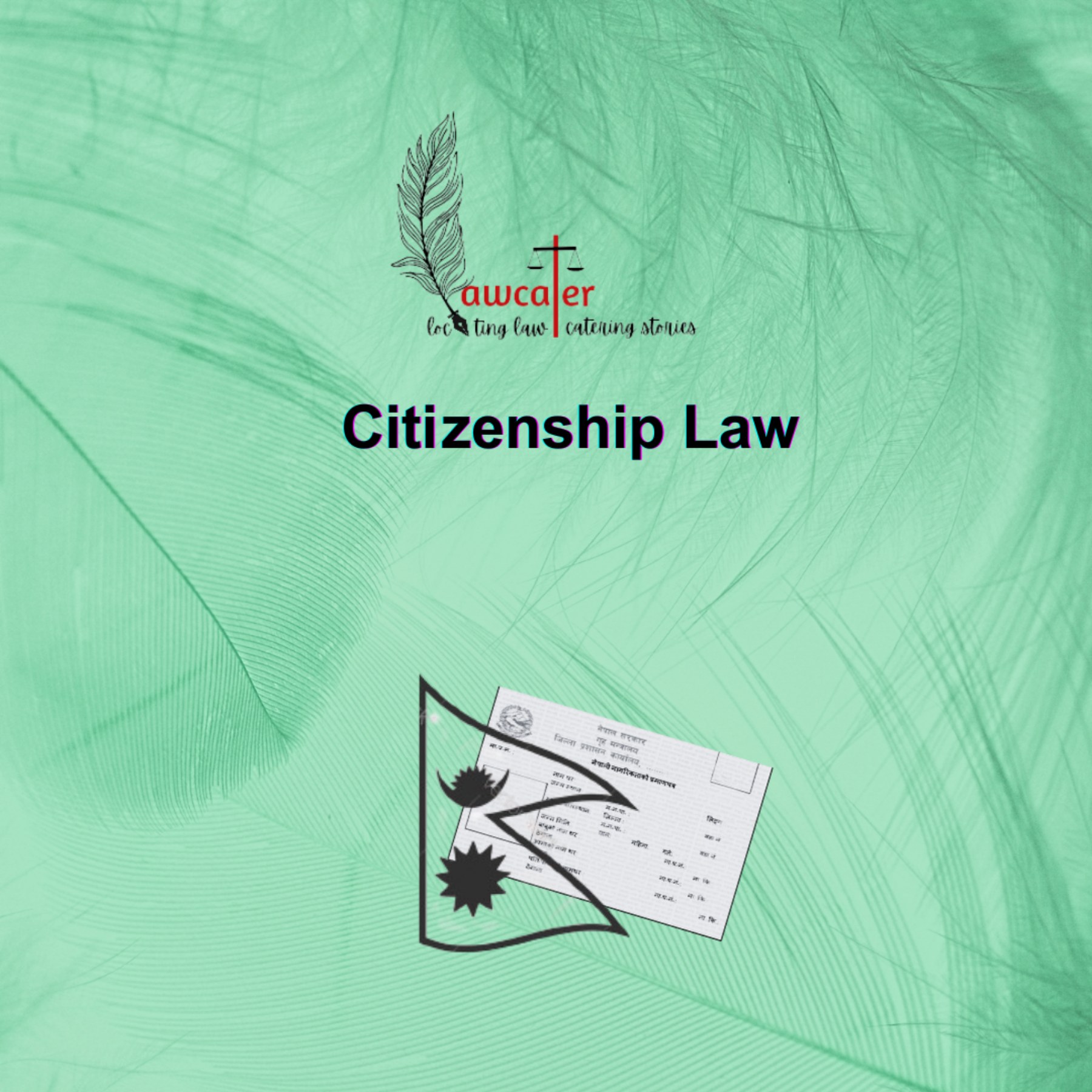Citizenship confers status within a country. The laws regarding citizenship determine the rights and responsibilities of citizens, their eligibility for citizenship, and the processes for naturalization or renunciation. Citizenship laws are crucial in establishing the legal identity of individuals, granting them access to civic rights such as voting, education, and healthcare, and ensuring their participation in the political and social life of the country. They often address issues such as birthright citizenship, dual nationality, and the rights of children born to citizens abroad, reflecting a country's values, demographic goals, and international relations. Here are a few legal provisions concerning citizenship in Nepal:
- Citizenship by Descent: No citizen of Nepal shall be deprived of the right to obtain citizenship, as Nepal provides a single federal citizenship with provincial identity. Minors found in Nepal with unknown parents are considered Nepali citizens by descent until their parents are traced.
- Naturalized Citizenship: Foreign women married to Nepali citizens may acquire naturalized citizenship as per federal law. Individuals born to Nepali mothers and foreign fathers who reside permanently in Nepal and do not hold foreign citizenship may acquire naturalized citizenship. If both parents are Nepali, citizenship is by descent.
- NRN Citizenship: Non-resident Nepali citizenship can be granted to individuals who have acquired foreign citizenship, reside outside South Asian Association for Regional Cooperation (SAARC) member states, and whose father, mother, grandfather, or grandmother was previously a Nepali citizen by descent or birth, allowing them to enjoy economic, social, and cultural rights as per federal law.
- Special Cases: The Government of Nepal can grant naturalized or honorary citizenship according to federal law. When new territory is incorporated into Nepal, residents of that territory can become Nepali citizens under federal law.
- Gender Identity: Individuals eligible for citizenship by descent can obtain citizenship certificates identifying either their mother or father.
- Dual Citizenship: Nepali citizens who voluntarily acquire foreign citizenship automatically lose their Nepali citizenship. Citizens can renounce their Nepali citizenship by submitting a notice in the prescribed form. Dual citizens must choose one citizenship by age 18; failure to do so results in the loss of Nepali citizenship. The designated authority will resolve disputes about whether a Nepali citizen has acquired foreign citizenship. Individuals cannot hold more than one citizenship certificate. A new certificate can be issued if residency changes and the first certificate is withdrawn.
- Revocation: The government can cancel citizenship obtained fraudulently through false documents. Affected individuals can appeal within thirty-five days.
- Reacquisition: Nepali citizens who return to Nepal and renounce their foreign citizenship can have their Nepali citizenship reinstated.
- Punishment: Foreign nationals falsely claiming Nepali citizenship face imprisonment (1-5 years) and fines (50,000-100,000 rupees). Fraudulently obtained citizenship will be canceled. Those involved in false verification or recommendation for citizenship face imprisonment (6 months - 3 years) and fines (25,000-50,000 rupees). Assisting in obtaining or using a false Nepali citizenship certificate results in imprisonment (1-5 years) and fines (20,000-100,000 rupees). Altering or correcting original citizenship certificates can result in up to 3 months' imprisonment or a fine of up to 10,000 rupees. Authorities issuing or altering citizenship certificates illegally face departmental action.

Comments